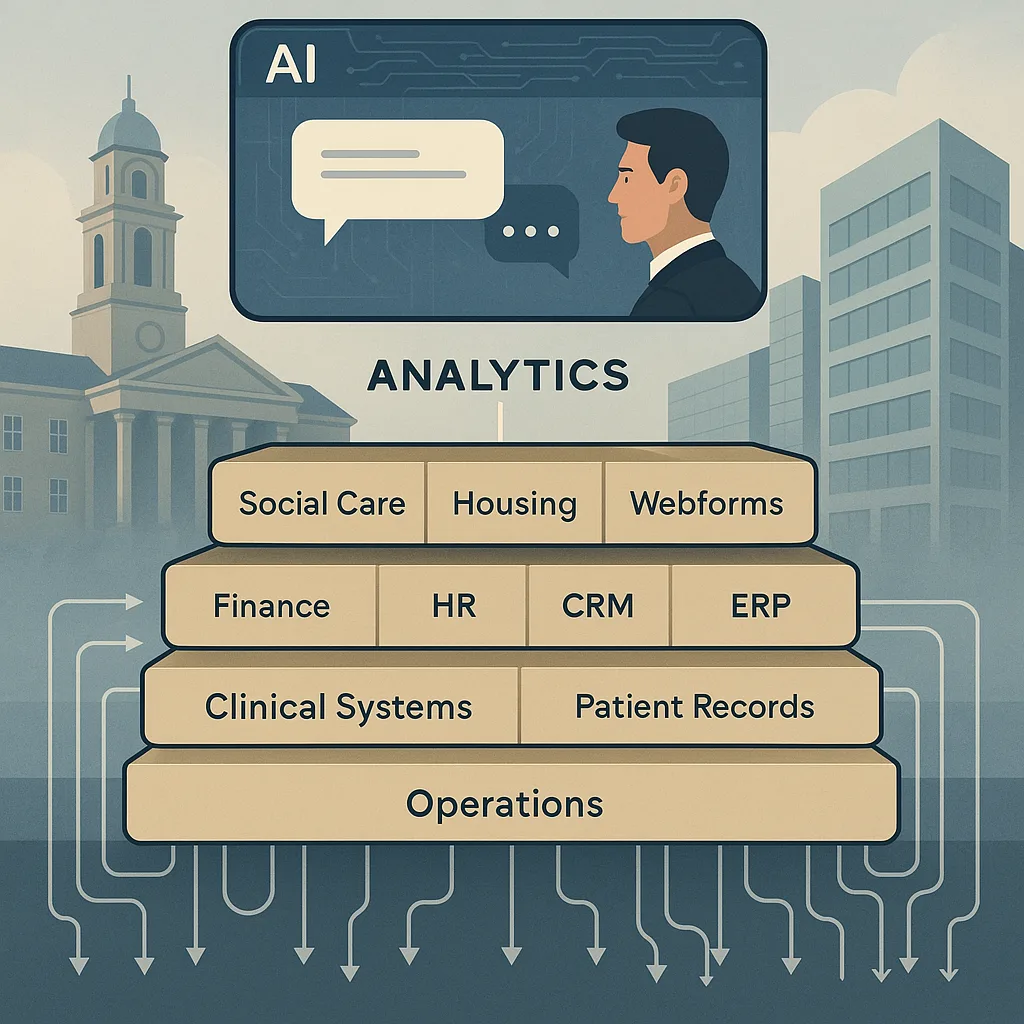
The UK’s adult social care (ASC) workforce is at a crossroads. A sector already grappling with high turnover rates, recruitment challenges, and financial pressures is now seeing alarming trends in staff wellbeing and job satisfaction. The recent Adult Social Care Workforce Survey released by the Department for Health and Social Care, paints a stark picture: high anxiety, low morale, and a workforce stretched to breaking point.
For councils, the implications are profound. Ensuring the sustainability of social care services while meeting increasing demand requires urgent action. At itelligent-i, we believe data and analytics can play a critical role in shaping a more effective, sustainable, and supportive system for social care workers and the people they care for.
The workforce survey, conducted between August and October 2023, highlights significant concerns about work-related quality of life (WRQoL), financial security, and workplace conditions:
- Job Satisfaction and Wellbeing: Only 41% of ASC workers report high or very high life satisfaction. Anxiety is a prevalent issue, with 42% rating their anxiety levels as high, compared to the general population.
- Workplace Conditions: Stress at work scores lowest among WRQoL factors. Over half (52%) of workers feel they do not have enough time to do their jobs properly.
- Financial Pressures: 68% of social care staff say they lack financial security, with 76% citing the cost of living as too high and 64% believing their pay is too low.
- Retention and Turnover Risks: 34% of workers are actively looking for a way out. Of those considering leaving, two-thirds cite low pay and poor working conditions as the primary reasons.

These challenges aren’t new, but the latest data underscores the scale of the problem. Councils cannot afford to wait—action is needed now to stabilise the workforce, improve retention, and ensure high-quality care for those who depend on these services.
While many local authorities recognise the challenges facing ASC, they often lack the granular workforce data needed to make targeted interventions. This is where itelligent-i’s expertise comes in. By leveraging data, analytics, and AI, councils can develop evidence-based strategies to improve social care workforce conditions.
1. Predicting Workforce Attrition and Addressing Gaps
The high turnover rate in ASC is well-documented, but many councils lack the capability to predict where the next staffing crisis will emerge. Through predictive analytics, itelligent-i can help councils identify at-risk job roles, forecast future workforce needs, and develop early interventions to improve retention.
For example, insights from the Van Laar WRQoL model used in the workforce survey highlight the job roles most likely to experience stress, dissatisfaction, and burnout. Councils can use this data to implement targeted retention strategies, such as prioritising pay uplifts for the most at-risk roles, providing additional training, or improving shift flexibility.

2. Using AI to Optimise Workforce Deployment
Many frontline social care staff report feeling overstretched and under-supported. itelligent-i’s workforce optimisation models can help councils deploy staff more effectively, reducing stress and ensuring that care workers have the time needed to provide high-quality support.
By integrating real-time workforce data with demand forecasting, councils can:
- Match staffing levels to demand more efficiently.
- Identify areas with chronic understaffing and shift resources accordingly.
- Reduce reliance on expensive agency staff, saving councils millions annually.
3. Improving Workforce Wellbeing Through Data-Driven Insights
One of the most concerning findings in the survey is that many social care workers feel undervalued and unsupported. Only 46% believe their role is adequately valued, and over half of ASC staff worry about work outside of working hours.
Councils can use natural language processing (NLP) and sentiment analysis tools to monitor staff feedback in real time. By analysing workforce survey responses, case notes, and HR feedback, councils can pinpoint issues affecting morale and take proactive steps to improve workplace culture, training, and support structures.

4. Tackling Pay and Career Progression with Financial Modelling
The survey shows that low pay and lack of career opportunities are the top reasons people leave social care. Yet, many councils struggle to balance workforce investment with budget constraints.
Through intelligent financial modelling, councils can:
- Assess the long-term financial impact of pay uplifts and career progression schemes.
- Identify external funding sources, such as the UK Shared Prosperity Fund or workforce development grants.
- Optimise budgets to ensure that investment in staff pays off through improved retention and better care outcomes.
The social care workforce crisis is not an isolated issue—it affects the entire local government system, from NHS pressures to housing and community wellbeing. Councils must take a whole-system approach to workforce planning, leveraging data and technology to drive meaningful change.
At itelligent-i, we’re already working with forward-thinking councils to tackle these issues. Whether it’s using AI to optimise workforce deployment, developing predictive retention models, or integrating social care data with other local government services, our goal is to help councils make data-driven decisions that improve outcomes for both care workers and the people they support.
The findings of the Adult Social Care Workforce Survey reinforce what councils already know: the sector is in crisis. But they also provide the data needed to take targeted action.
By investing in data, analytics, and AI, councils can develop proactive, intelligent strategies to stabilise the social care workforce, improve service quality, and ensure that frontline workers feel valued, supported, and fairly compensated.
At itelligent-i, we are ready to help local authorities harness the power of data to drive real change in social care. The future of the workforce—and the people who rely on it—depends on it.



